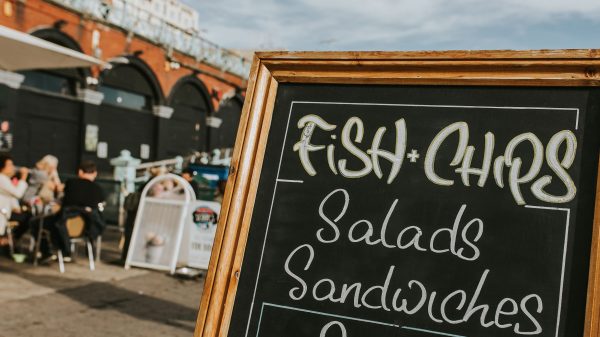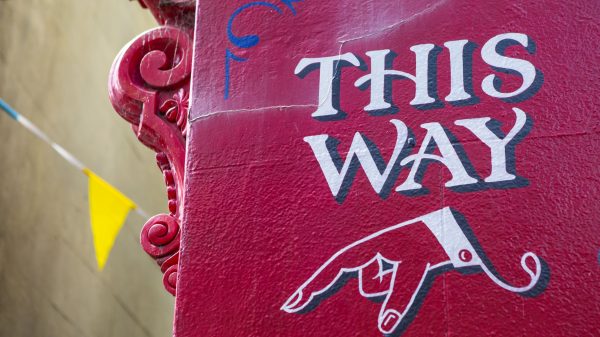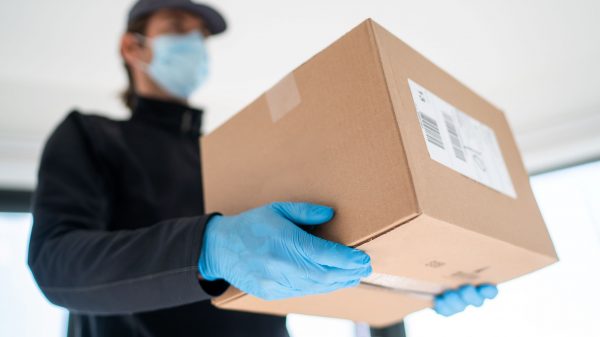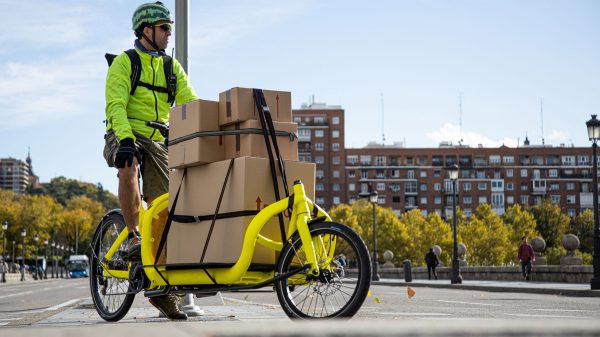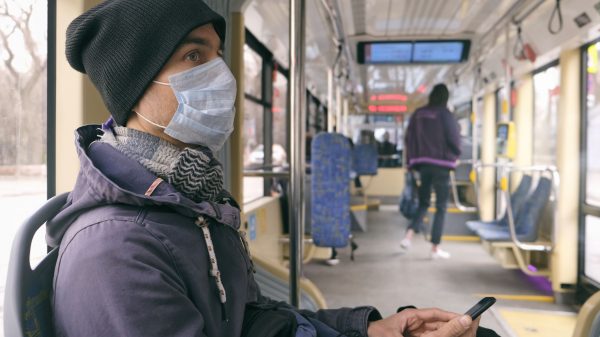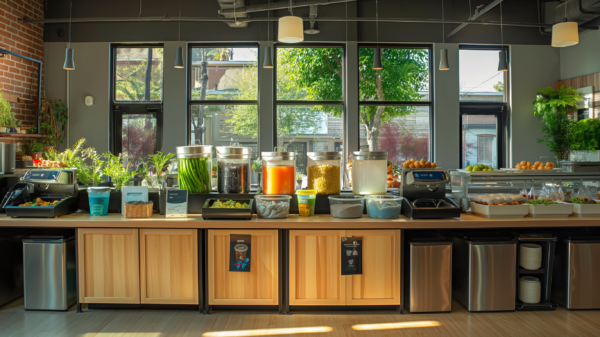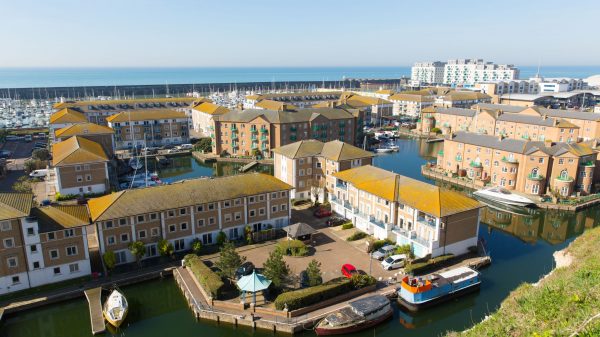Brighton, a vibrant and eclectic city on the south coast of England, is well-known for its diverse retail landscape. From quirky independent shops to bustling markets and well-established retail chains, Brighton offers a unique shopping experience.
However, e-commerce is transforming the retail sector, presenting challenges and opportunities for local businesses. In this blog post, we will explore how Brighton’s retailers adapt to this trend and what it means for the future of shopping in this dynamic city.
Context and Background

Brighton’s retail sector has always been a significant part of its charm, attracting both locals and tourists with its unique offerings. The city is celebrated for its independent stores, offering everything from vintage clothing and handmade jewellery to organic food and artisanal crafts. However, like many other places, Brighton is experiencing a profound shift in consumer behaviour due to the rise of e-commerce.
The convenience, variety, and often lower prices offered by online shopping have led many consumers to prefer digital over physical stores. This shift is driven by technological advancements, increased internet accessibility, and changing lifestyles prioritising convenience and speed.
Current Retail Trends in Brighton
- Growth of E-Commerce:
- The surge in online shopping is a trend that has permeated every corner of the UK, and Brighton is no exception. Consumers increasingly prefer the convenience of shopping from home, especially given the broad array of products available online. This trend has accelerated due to the COVID-19 pandemic, which forced many consumers to rely on online shopping during lockdowns. E-commerce platforms like Amazon and eBay have become go-to options for many, but local retailers are also stepping up their game.
- Local and Sustainable Shopping:
- Despite the rise of e-commerce, there is a strong movement towards supporting local businesses and sustainable shopping in Brighton. The community here values eco-friendly practices and unique, locally-made items, creating a niche market that thrives on the city’s cultural and ethical ethos. This trend is evident in the popularity of stores that offer sustainable products, from zero-waste shops to organic food stores. Brighton’s residents are environmentally conscious and prefer to support businesses that align with their values.
- Pop-Up Shops and Markets:
- To complement their online presence, many retailers in Brighton are utilising pop-up shops and participating in local markets. These temporary retail spaces allow businesses to engage directly with customers, providing a tactile and personalised shopping experience that online platforms can’t replicate. The city hosts numerous markets, such as the Brighton Open Market and the Makers Market, where local artisans and small businesses can showcase their products. These markets provide a platform for sales, help build community, and foster a sense of local pride.
Adapting Strategies

Retailers in Brighton are employing a variety of strategies to adapt to the rise of e-commerce while preserving their unique local identity:
- Developing Online Presence:
- Investing in e-commerce platforms is a critical strategy. Retailers enhance their websites, engage in social media marketing, and list their products on online marketplaces. This expansion allows them to reach a broader audience, including those who prefer shopping online but still want to support local businesses. For example, many Brighton retailers have set up online stores on platforms like Shopify and Etsy, allowing them to tap into a global market. Social media channels like Instagram and Facebook are also used effectively to market products, share stories, and engage with customers.
- Enhancing In-Store Experience:
- Physical stores are focusing on creating exceptional in-store experiences. This includes personalised customer service, hosting workshops, and organising events that draw customers in. By providing a memorable shopping experience, retailers can build strong customer loyalty that complements their online efforts. For instance, some stores offer exclusive in-store discounts, loyalty programs, and personalised shopping services. Workshops and events, such as craft classes or tasting sessions, create a unique experience that online shopping cannot match.
- Collaboration and Community Engagement:
- Retailers increasingly collaborate with local artists, creators, and other businesses to offer unique products and experiences. This collaboration helps to strengthen community ties and create a sense of local pride, encouraging consumers to support Brighton-based businesses. Examples include collaborative product lines, co-hosted events, and cross-promotions. By working together, local businesses can pool resources, share audiences, and create a more substantial presence in the market.
Challenges and Opportunities
The shift to e-commerce presents both challenges and opportunities for Brighton’s retailers:
- Challenges:
- Cost of Online Development: Developing and maintaining a robust online presence can be costly, particularly for small businesses. Creating a user-friendly website, investing in digital marketing, and managing online sales require significant resources. Additionally, keeping up with the latest technology and trends can be challenging for smaller retailers with limited budgets.
- Balancing Operations: Retailers need to balance their online and offline operations. Ensuring that both channels complement each other without straining resources is crucial. Managing inventory, providing consistent customer service, and maintaining brand identity across different platforms can be complex.
- Opportunities:
- Broader Audience Reach: E-commerce provides an opportunity to reach a wider audience beyond Brighton. This expanded reach can lead to increased sales and brand recognition. For example, a small local shop can now sell its products to customers across the UK and internationally. This not only boosts revenue but also helps to establish the brand on a larger scale.
- Leveraging Local and Sustainable Practices: Brighton’s strong community spirit and focus on sustainability offer a unique selling proposition. Retailers can differentiate themselves by emphasising these values in their marketing and product offerings. Highlighting local production, sustainable sourcing, and ethical practices can attract customers who prioritise these values. Moreover, transparency about these practices can build trust and loyalty among consumers.
Future Outlook

A blend of online and offline strategies will likely characterise the future of retail in Brighton. While e-commerce is expected to continue its upward trajectory, there will also be a strong emphasis on maintaining the city’s unique local retail culture. Retailers who can effectively blend digital and physical shopping experiences while emphasising local and sustainable practices are poised to thrive in this evolving landscape.
Hybrid Retail Models:
- The integration of online and offline channels is becoming increasingly important. Hybrid models, such as click-and-collect services, allow customers to order online and pick up in-store, combining the convenience of e-commerce with the immediacy of physical retail. This model enhances customer experience and drives foot traffic to physical stores, providing opportunities for additional sales.
Personalisation and Customer Engagement:
- Leveraging data analytics to offer personalised recommendations and targeted marketing can enhance the customer experience. Understanding customer preferences and shopping behaviours allows retailers to tailor their offerings and marketing strategies to meet individual needs. Personalised communication, loyalty programs, and exclusive offers can further engage customers and foster loyalty.
Sustainability and Ethical Practices:
- As consumers become more environmentally conscious, sustainability and ethical practices will continue to be significant differentiators. Retailers prioritising eco-friendly products, sustainable sourcing, and transparent practices will appeal to a growing segment of conscious consumers. Initiatives such as reducing packaging, using renewable energy, and supporting local communities can enhance brand reputation and customer loyalty.
Technological Advancements:
- The adoption of new technologies, such as augmented reality (AR), virtual reality (VR), and artificial intelligence (AI), can enhance both online and offline shopping experiences. AR and VR can provide immersive shopping experiences, allowing customers to visualise products in their environment. AI can improve customer service through chatbots, personalised recommendations, and efficient inventory management.
Conclusive Thoughts
Brighton’s retail sector is at a crossroads, navigating the challenges and opportunities presented by the rise of e-commerce. By developing robust online presences, enhancing in-store experiences, and leveraging the city’s unique community values, retailers can adapt to the changing landscape while maintaining the vibrant and diverse retail culture that makes Brighton special. As the trend towards e-commerce continues, the retailers who can successfully integrate these strategies will be the ones to watch in the coming years.
In summary, adapting to the rise of e-commerce in Brighton involves embracing digital transformation, optimising logistics, focusing on customer experience, and balancing the unique local retail culture with the demands of the modern consumer. By doing so, Brighton’s retailers can ensure they survive and thrive in the digital age.
Brighton’s ability to maintain its unique charm and character while embracing the future of retail will serve as a model for other cities facing similar challenges. The city’s blend of traditional and modern retail practices and commitment to sustainability and community will continue attracting locals and visitors, ensuring that Brighton remains a vibrant shopping destination.







